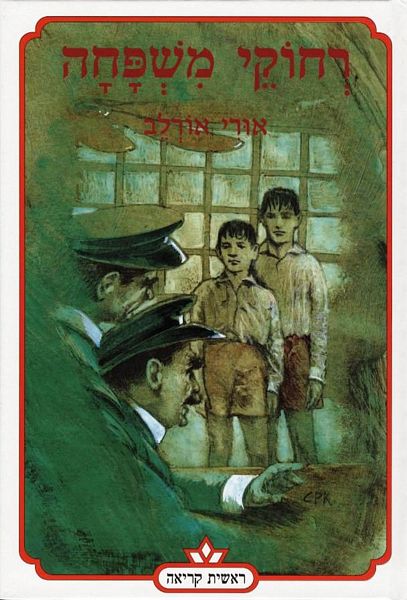
Last of Kin
Uri Orlev likes to say that unlike other children who survived the Holocaust and whose integration in Israel was a traumatic experience, his own integration was quick and easy. This book could have been sad and full of pathos, but instead it is told in a humorous way. The story of the two children, Uri and his younger brother Yigal, is the autobiographical account of the author and his brother. It begins in Kibbutz Ginegar, where the two children were sent after losing both parents and surviving the Holocaust. One day they receive a letter in Polish, which informs them that they have two relatives living in Tel Aviv. They are not exactly close relatives; in fact, they are not blood relations at all. Nevertheless, Uri and Yigal are very excited to discover that someone else in their extended family survived the war.
From here on the plot, set in Palestine towards the end of the British Mandate, takes an adventurous turn. The two boys leave the kibbutz at night without permission, hitching a ride on the milk truck. They get as far as the Petah Tikva junction, and since it is the middle of the night they intend to stay there until morning and continue their journey at dawn. Their plan is upset by the police, who suspect that they have run away from their parents. Yigal arouses their sympathy by telling them that he and his brother are orphans, on their way to meet relatives in Tel Aviv. The policemen help them to reach their destination, where they are warmly received. The adventure ends, but how will they react in the kibbutz? Will they punish the two orphans who unexpectedly found an uncle? Uri and Yigal begin to laugh, and only when they remember their mother and father, do they become serious again. Their parents would have been happy to know that their children had found a family.

